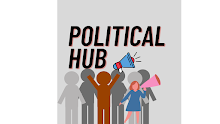Karoline Leavitt Discusses The Effect Of Trump’s Tariffs On The Stock Market: ’Wall Street Will Be Just Fine’
 |
| Photo credit: Gage Skidmore/CC BY-SA 2.0, via Flickr |
Karoline Leavitt Discusses The Effect Of Trump’s Tariffs On The Stock Market: ‘Wall Street Will Be Just Fine’
Washington, D.C. – April 1, 2025
During Tuesday’s White House press briefing, Press Secretary Karoline Leavitt assured reporters that Wall Street will weather the impact of President Trump’s new tariffs, emphasizing that the administration’s priority remains revitalizing American industry and protecting Main Street workers.
Trump’s Tariffs Take Effect Immediately
Leavitt confirmed that Trump’s long-anticipated tariffs will take effect on April 2, 2025, marking what he has dubbed "Liberation Day." The tariffs, aimed at countries that have taken advantage of the U.S. through unfair trade practices, are expected to incentivize businesses to invest domestically and rebuild American manufacturing.
“The president has been talking about April 2nd as Liberation Day in America. It would be taking place today if not for April Fools’ Day, but tomorrow will be the day,” Leavitt stated.
Market Reactions & White House Confidence
When pressed about concerns regarding market volatility, Leavitt downplayed fears of a stock market downturn, reiterating Trump’s long-held belief that Wall Street will adjust and ultimately thrive.
“The market is a snapshot in time. Dow futures were up yesterday, and there has been a lot of talk about the market, but just like in President Trump’s first term, Wall Street will be just fine,” she reassured.
While some analysts have speculated that tariffs may cause temporary market fluctuations, Leavitt insisted that the long-term benefits to the American economy far outweigh any short-term uncertainty.
Economic Priorities: Main Street Over Wall Street
Trump’s tariff policy is designed to prioritize American workers over multinational corporations. Leavitt highlighted that the administration is laser-focused on securing prosperity for Main Street businesses and American workers, ensuring that U.S. companies no longer face unfair competition from foreign markets with lower labor and production costs.
“The president wants to ensure that all Americans make out well—particularly Main Street. That’s the focus of these tariffs,” Leavitt emphasized.
Liberation Day: A Turning Point for U.S. Trade
President Trump has framed April 2nd as a pivotal moment in American economic history, a day when the U.S. will reclaim its financial independence from decades of exploitative trade deals.
As Trump prepares to unveil the full details of his tariff strategy in a Rose Garden event, the administration remains confident that this bold move will lead to a resurgence in American manufacturing, job creation, and economic growth—with Wall Street ultimately benefiting in the long run.
FAQs: Trump’s Tariffs & Stock Market Reactions
1. What are President Trump’s new tariffs?
President Trump’s new tariffs target countries that have engaged in unfair trade practices against the U.S. The goal is to rebuild American manufacturing, encourage domestic investment, and create jobs.
2. When do the tariffs take effect?
The tariffs will take effect immediately on April 2, 2025, which Trump has dubbed “Liberation Day.”
3. Why is April 2, 2025, called "Liberation Day"?
Trump has labeled April 2nd as “Liberation Day” because he believes the tariffs will end decades of exploitative trade deals and unfair economic practices, restoring American financial independence.
4. How will these tariffs impact the stock market?
While there may be short-term fluctuations, Press Secretary Karoline Leavitt reassured that Wall Street will adjust and ultimately thrive, just as it did during Trump’s first term.
5. What is the White House’s response to stock market concerns?
The White House believes the stock market is a snapshot in time and that the long-term economic benefits of the tariffs will outweigh any short-term volatility.
6. Will these tariffs hurt American businesses?
The administration argues that these tariffs are designed to help American businesses by protecting them from unfair foreign competition and encouraging companies to invest in the U.S.
7. How do these tariffs benefit American workers?
By imposing tariffs on foreign goods that undercut American industries, the policy aims to revive U.S. manufacturing, bring jobs back to the country, and boost wages.
8. Will more tariffs be announced in the future?
Leavitt did not specify, but she hinted that the April 2nd announcement will provide details on the administration’s broader trade strategy moving forward.
9. What industries will be most affected by the tariffs?
Industries like manufacturing, steel, technology, and agriculture could see significant changes, with American companies gaining a competitive edge.
10. Where can I watch President Trump’s tariff announcement?
The tariff announcement will take place in the White House Rose Garden and will be broadcast live on major news networks and social media platforms.

Comments
Post a Comment
If You have any doubt, please let me know.